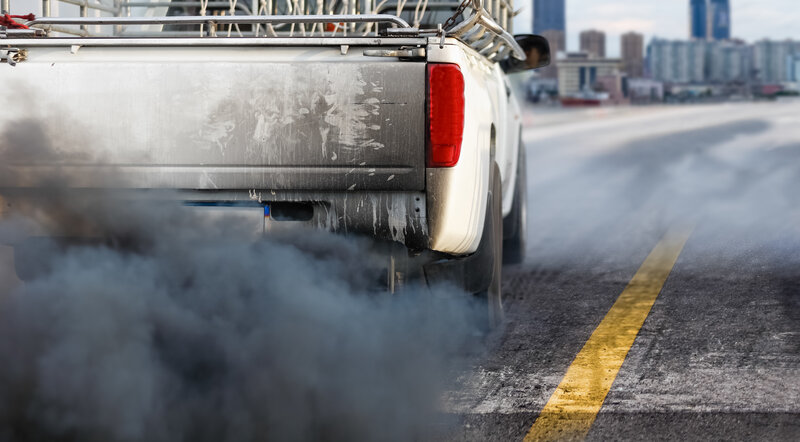
Since 1970, the Environmental Protection Agency (EPA) has made significant efforts to regulate the emissions of nitrogen oxides (NOx) from heavy vehicles. In 2010, engineers introduced diesel exhaust fluid (DEF) as an effective after-treatment solution for selective catalytic reduction systems.
Today, the EPA mandates that all medium to large vehicles with diesel engines must have integrated DEF technology. This post will help you understand this fluid and why it is so important. Explore mobile diesel repair service options in the Bay Area to learn more about this technology.
Diesel exhaust fluid consists of deionized water and urea. Urea is a synthetic compound that changes into ammonia at high temperatures.
An injection of DEF into the exhaust stream turns the NOx into water. As a result, the vehicle emits less harmful gas into the atmosphere. The average truck will expend 2-3 gallons of DEF every 800 miles.
Consider that some newer model trucks can travel up to 10,000 miles with a full tank (typically ten gallons) of diesel exhaust fluid.
You can buy DEF in gallon containers at some gas stations. However, it’s wise to keep a backup supply nearby in case some locations do not sell these products. Remember that your vehicle’s engine will stop functioning if it consumes all the DEF in the tank.
DEF products retain a shelf life of about one to two years when stored properly.
Some drivers worry that their diesel exhaust fluid will quickly evaporate because it contains mostly water. Unless you are exposing your supply to hot environments for several days, this problem will likely not occur.
However, you should expect DEF to begin freezing at around 14 degrees Fahrenheit (minus 10 degrees Celsius).
Keep an eye on your mileage and stop to refill when your supply gets low. Various conditions may impact how frequently you need to refuel your DEF tank. Most drivers refill their tanks with diesel exhaust fluid every three to four times they stop at a pump station.
All diesel vehicles must include DEF systems with dashboard warning sensors. This technology enables drivers to see when their tank needs more fluid.
Some vehicles allow the driver to “limp” their truck back home if their DEF tank is empty. However, eventually, the diesel engine will stop functioning altogether. This problem can leave a driver stranded on the side of the road until they refill their tank.
Most gas stations that dispense DEF provide signs that help you avoid pumping the wrong fluid into your tank. Keep an eye out for labels that read “DEF ONLY.” Green pumps indicate regular diesel, while blue pumps indicate diesel exhaust fluid.
If you fill your DEF tank with diesel fuel, expect a few problems to occur. First, the diesel exhaust fluid will corrode your vehicle’s fuel lines. The potent mixture is incompatible with these components and can create thousands of dollars in damage.
You should also expect your vehicle’s engine to experience a total failure. DEF will damage the fuel rail, pump module, and injectors.
If you notice that you filled your DEF tank with diesel fuel accidentally, don’t start the engine. The fluid will not damage your components unless the engine is operating. It’s best to avoid moving your vehicle as well.
Moving your truck can cause the diesel to spread into the selective catalytic reduction system (SCR). Simply drain the tank while the vehicle is idle and dispense the correct fluid. Running your engine with diesel in the DEF tank will destroy your SCR system and put you out of warranty for repairs.
Initially, many drivers and heavy vehicle manufacturers complained about DEF mandates. This technology was expensive to implement and added extra steps during the refueling process. However, as the years passed, DEF technology became more affordable and offered many benefits to drivers and the environment.
Exposure to DEF vapors is much less toxic than direct exposure to diesel. Drivers who spend years on the road inhaling diesel may experience many health problems, including cardiovascular disease, asthma, and more.
The switch to DEF prevents unnecessary illnesses and promotes the overall health of drivers and the communities in which they operate. The EPA estimates that this technology will reduce hospital visits, sick days, and deaths. Consequently, the nation will save billions of dollars in the coming years.
DEF boosts the efficiency of a truck’s engine. Because it produces low emissions, drivers can set their vehicles to a higher power and reduce the number of oil changes they need between routes. Furthermore, this fluid doesn’t require additional cooling solutions or vehicle installations.
Your engine can last much longer with this highly efficient technology.
DEF primarily benefits the environment by reducing harmful gas emissions into the atmosphere. It also saves taxpayers money on ecological mitigation.
This colorless liquid is stable and safe to store. It will not endanger plants or animals if you handle it properly.
Using DEF significantly reduces your carbon footprint compared to conventional NOx emissions. The product complies with global composition standards and is available for agricultural and chemical industries.
At All Bay Diesel, we help you understand how your vehicle operates. Our service technicians have years of experience repairing trucks and heavy equipment. If you need repairs from a mechanic you can trust, reach out to our crew for world-class service.
We check all your diagnostics, after-treatment systems, and engine stability during every visit. You can expect clear and honest communication from the team during the process.
Learn more about the different types of diesel fluid your truck uses by talking to our mechanics. We take the time to understand your concerns and offer the professional recommendations you need.
Are you experiencing problems with your diesel exhaust fluid system? Call All Bay Diesel at (925) 522-1780.